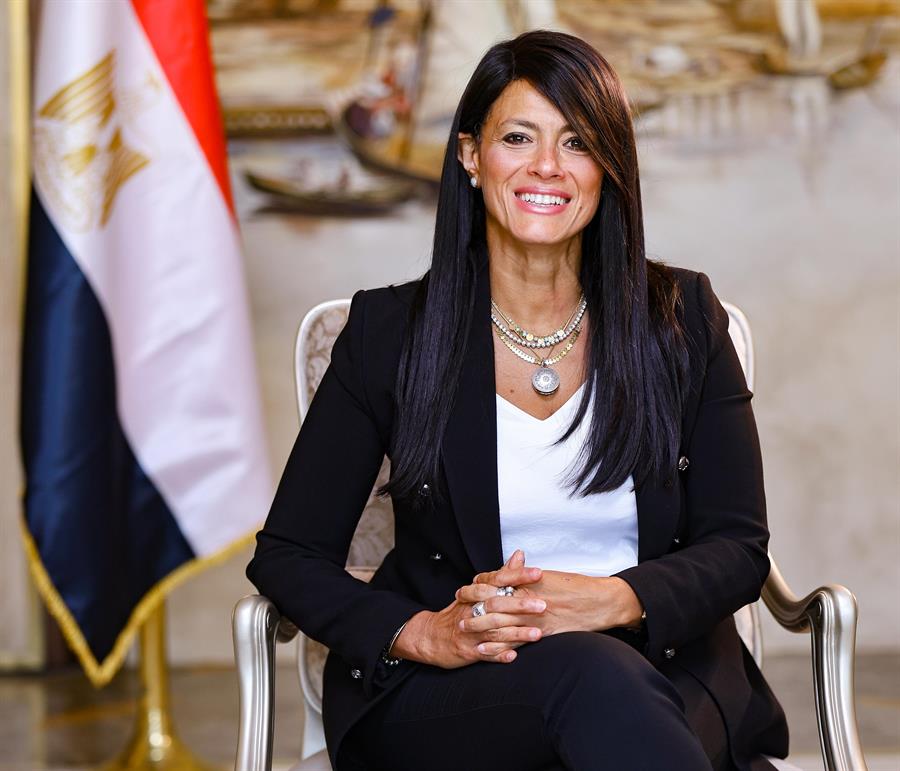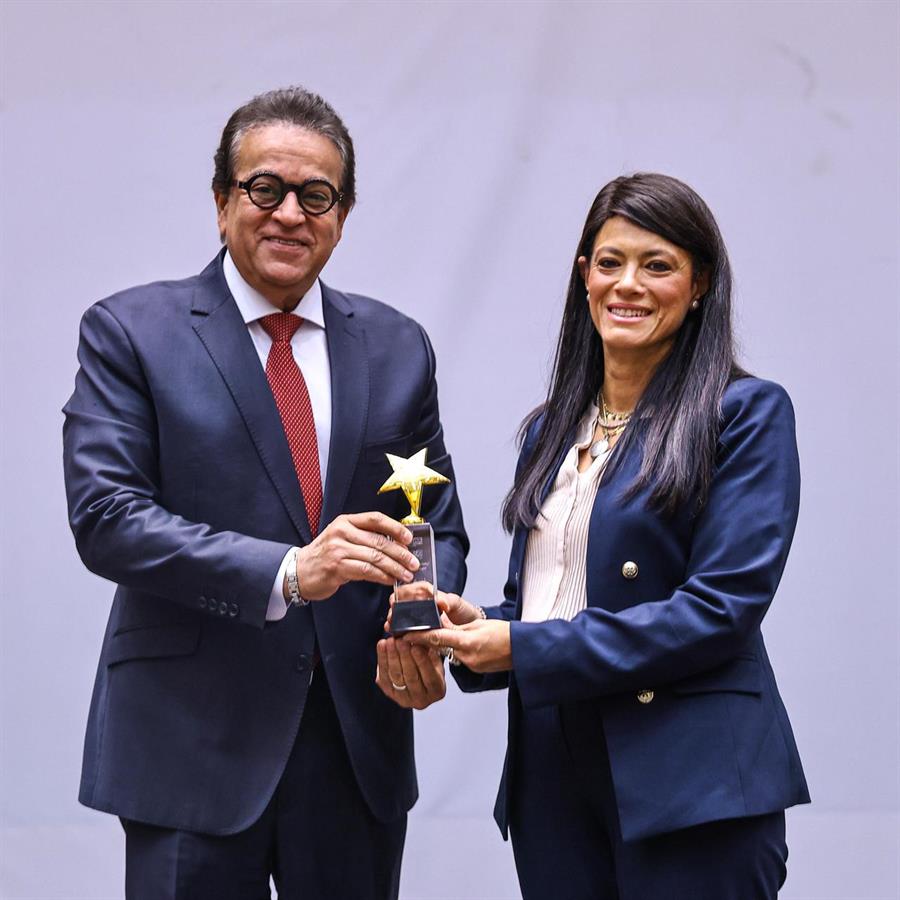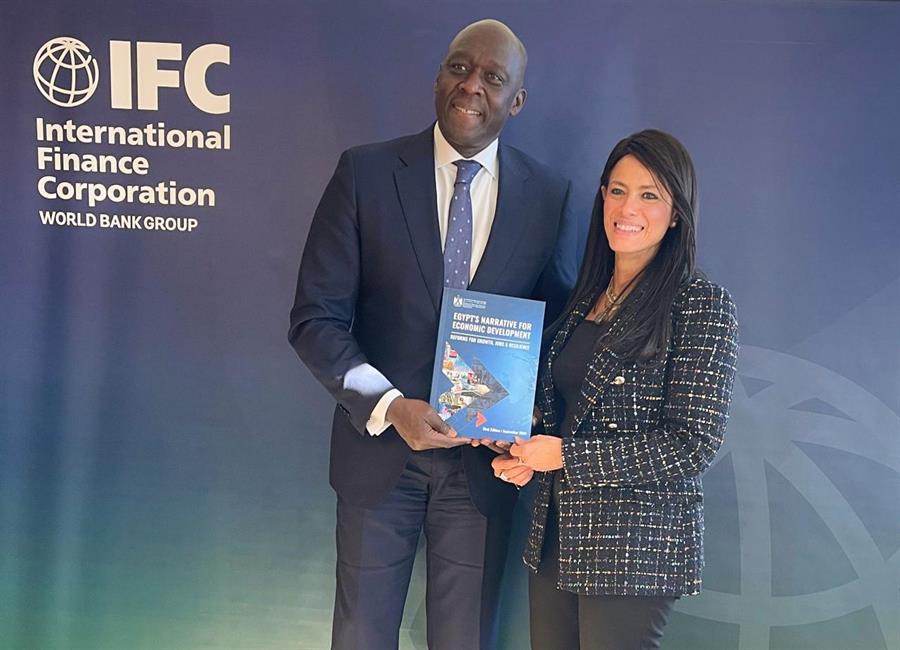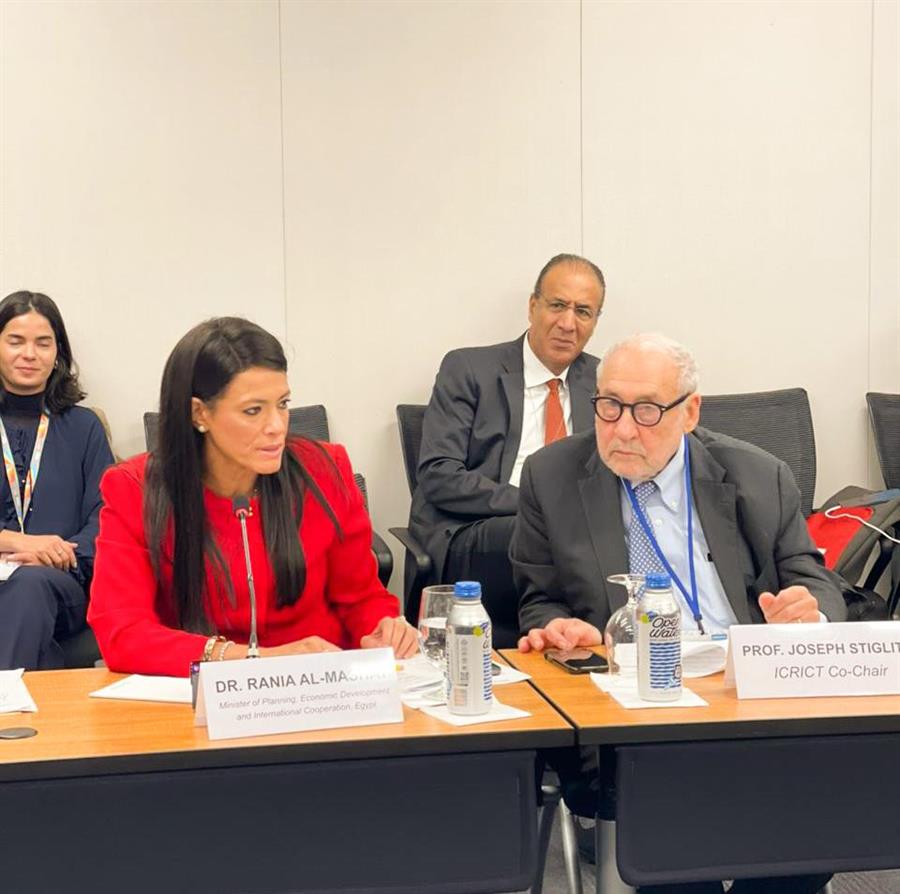Minister of Planning, Economic Development, and International Cooperation in her Speech at the "People and Banks" Conference

22 October 2025
The upgraded credit rating and improved macroeconomic indicators reflect the effectiveness of economic and structural reform decisions.
Ongoing coordination among the ministerial group to maintain macroeconomic stability and unlock the full potential of the Egyptian economy.
“Egypt’s Narrative for Economic Development: Reforms for Growth, Jobs & Resilience” is an economic reform program focused on real economy sectors to boost growth and employment.
We expect Egypt’s economic growth to continue improving, reaching nearly 5% by the end of the 2025/2026 fiscal year.
The banking sector accounts for 42% of the development financing to the private sector, which has exceeded $16 billion since 2020.
H.E. Dr. Rania Al-Mashat, Minister of Planning, Economic
Development and International Cooperation, delivered the opening speech at the
nineteenth session of the "People and Banks" Economic Conference,
organized by the Arab Media Center under the auspices of the Central Bank of
Egypt, under the title "Smart Economy... Secure Future." The
conference was attended by Dr. Mostafa El-Feky, Chairman of the Arab Media
Center, Mr. Tarek El-Khouly, Deputy Governor of the Central Bank of Egypt, Mr.
Mohamed El-Etreby, Chairman of the Federation of Egyptian Banks and CEO of the
National Bank of Egypt, Mr. Hisham Okasha, CEO of Banque Misr, and a selection
of bankers and economists.
In her speech, delivered via video, Dr. Rania Al-Mashat
affirmed that the "People and Banks" Economic Conference, over its
previous sessions, has served as an important platform for exchanging visions
and ideas on the most prominent issues facing the Egyptian economy, and for
presenting developments in the economic and banking arena and their
relationship with the Egyptian citizens.
Dr. Al-Mashat noted that this year’s conference is being
held at a time when the Egyptian economy is witnessing significant improvement,
especially in terms of GDP growth, which reached 4.4% by the end of the last
fiscal year. This growth was driven by notable developments in real economy sectors
such as non-oil manufacturing, information technology, tourism, and financial
intermediation and insurance.
Minister Al-Mashat added that recently, major credit rating
agencies have upgraded Egypt’s rating to B with a stable outlook, highlighting
the effectiveness of the economic and structural reforms initiated since March
2024. This reflects the strong coordination within the economic ministerial
group and the integration between the Central Bank and the government, all
aimed at preserving macroeconomic stability and unlocking Egypt’s economic
potential.
Amid these developments, Egypt, under the leadership of H.E.
President Abdel Fattah El-Sisi, was able to successfully coordinate
international and regional efforts to sign a historic peace agreement in Sharm
El-Sheikh to end the war in Gaza. The success and durability of this agreement
are expected to open up more positive prospects for both the Egyptian and
regional economies, including the resumption of activities in the Suez Canal.
Dr. Al-Mashat predicted that Egypt’s economy is on track to
achieve growth nearing 5% in the current fiscal year, supported by these
positive developments and the government’s commitment to continuing economic
and structural reforms.
Minister Al-Mashat stated:“Based on the role undertaken by
the Ministry in defining the state’s strategic objectives across all sectors
and setting priorities for implementation according to the General Planning Law
and the Public Finance Law, the Ministry has developed and formulated “Egypt’s
Narrative for Economic Development: Reforms for Growth, Jobs & Resilience”.
This initiative aims to integrate Egypt Vision 2030, the
government’s program, and sectoral strategies to transition towards an economic
model based on macroeconomic stability and the development of productive and
export-oriented sectors.”
Dr. Al-Mashat emphasized that “Egypt’s Narrative for
Economic Development” is an economic reform program that goes beyond just
fiscal and monetary policies. It that is not solely based on fiscal and
monetary policies but focuses on the real economy sectors and stimulating
policies that support growth and employment, through the implementation of the
National Structural Reforms Program, which includes numerous procedures with
defined timelines.
In a related context, Dr. Al-Mashat noted that the Ministry
of Planning, Economic Development and International Cooperation values its
close cooperation with the banking sector, led by the Central Bank, through
various financing tools provided by international partners, such as credit
lines, direct investments, concessional financing, and other funding
instruments, the value of which has exceeded $16 billion since 2020 until now.
Dr. Al-Mashat reiterated the critical role of the financial
and banking sector in attracting such funding, pointing out that financial
institutions, especially banks, account for 42% of these development funds.
This reflects the growing confidence of international development partners in
the Egyptian banking system as a key channel for capital inflows, SME
development, and entrepreneurship support.
Dr. Al-Mashat also touched upon her participation in the World Bank Annual Meetings in Washington, which saw significant interest in the Egyptian market from international financing institutions concerned with the private sector. She clarified that the meetings included fruitful discussions with the International Finance Corporation (IFC) to enhance partnership for private sector financing and to utilize the World Bank's unified guarantees platform, as well as the investment guarantees mechanism with the European Union, thereby providing more financing opportunities for the private sector in Egypt, both local and foreign companies, which ultimately reflects the state's efforts aimed at empowering the private sector and increasing investments.









